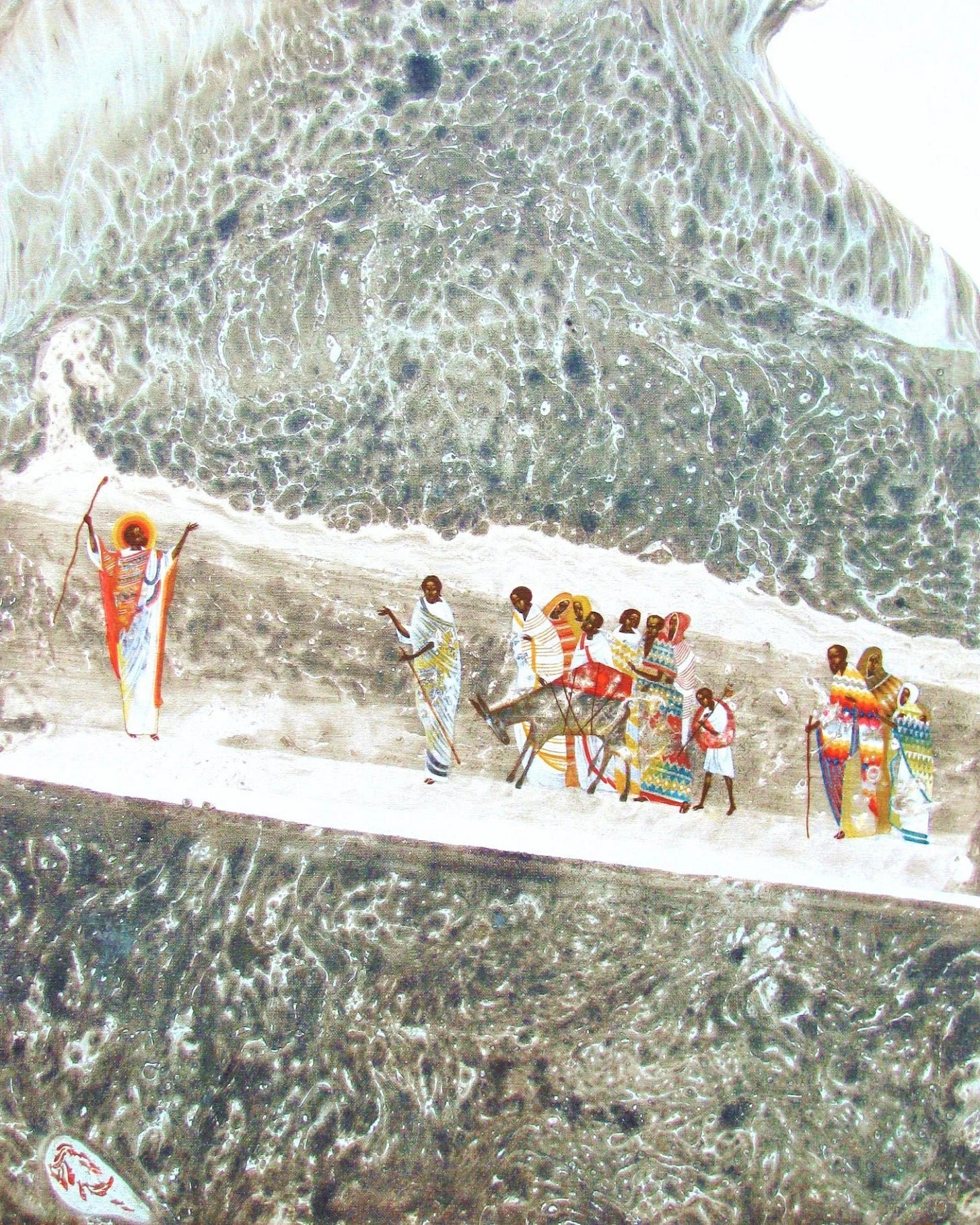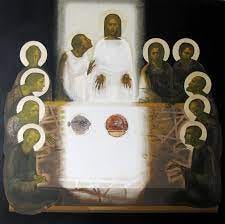The Exodus is an Apocalypse
God is whomever raised Jesus from the dead, having first raised Israel from slavery
The Old Testament lectionary text this Sunday is Exodus 14:19-31.
God is whomever raised Jesus from the dead, having first raised Israel from bondage in Egypt, says Robert Jenson. Just so, the exodus is an apocalypse.
As much as we throw around that word, “apocalyptic,” it’s meaning in the Bible is “good news,” not grim news. Theologically speaking, apocalyptic (ἀποκάλυψις) in the Bible does not refer to brimstone and doom. Instead, ἀποκάλυψις means unveiling, revealing. Or, as Paul uses it in his letters, “an incursion.”
In the New Testament ἀποκάλυψις refers not to the end times, but to an event in time.
In the holy scriptures, an apocalyptic moment is when the Living God moves in this Old Age of Sin and Death, moves to act decisively on behalf of His people.
“Saul, Saul, why do you persecute me?” is an apocalyptic moment.
“Lazarus, come out! Unbind him of his grave clothes and set him free!” is an apocalyptic moment.
“Little girl, wake up!” is an apocalyptic moment.
And so is the penultimate event of Almighty God delivering his captive children from Egypt.
In the Bible, the Exodus is an apocalyptic event second only to the Passion and Passover of our Lord Jesus Christ.
In fact, from the very beginning, the Church understood the latter in terms of the former. St. John of Damascus did so nearly a millenia ago in his Easter hymn, “O Come, Ye Faithful, Raise the Strain.” Listen to the way St. John narrates Easter in terms of the Exodus:
“Come, ye faithful, raise the strain of triumphant gladness; God hath brought his Israel into joy from sadness; loosed from Pharaoh's bitter yoke Jacob's sons and daughters; led them with unmoistened foot through the Red Sea waters.”
Or consider the preface to the ancient liturgy for the Easter vigil two nights from tonight,
“Dear friends in Christ,
On this most holy night, in which our Lord Jesus passed over from death to life, the Church invites her members, dispersed throughout the world, to gather in vigil and prayer. For this is the Passover of the Lord, in which, by hearing His Word and celebrating His Sacraments, we share in His victory over Death. He is the true Paschal Lamb, who at the feast of the Passover, paid for us the debt of Adam's sin, and by His blood delivered your faithful people...”
The Exodus event is how Jesus himself interprets the meaning of the apocalyptic event that will be his death and resurrection:
“On this night, when He was betrayed, Jesus took bread. He broke the bread, He gave thanks to God, He gave the bread to his friends and said, “Take, eat. This is my body [of the Passover] given for you.”
The full liturgy for the Easter vigil is quite long, guiding worshippers through nine thick scripture readings— all from the Old Testament. However, if a church must condense the Easter vigil for the sake of brevity, the liturgy stipulates that if only a single scripture is to be read, it must be this text from Exodus, the story of the deliverance at the Red Sea.
In other words, from the first Easter, the Church has insisted that Christ’s act of redemption is unintelligible apart from the apocalyptic event of Yahweh rescuing His people from the Enemy who bound them.
“Come, ye faithful, raise the strain of triumphant gladness; God hath led Jacob’s sons and daughters with unmoistened foot through the Red Sea waters.”
More so than the creatures of bread and wine, what’s important about the exodus is the apocalyptic event with which Christ frames His own mighty work on our behalf.
For Christians, more important even than the Exodus story is its God— a God who is powerful to move in our world on behalf of a frightened and powerless people.
A Living God who is able—
Able to make a way out of no way.
Able to call into existence the things that do not exist.
Able even to give life to the dead.
A Mighty God, who will in due season, the Apostle Paul proclaims, trample the Enemy under our feet, an Enemy Paul calls a Pharaoh named, “Death.”
Even in the Book of Exodus, the Passover meal, the bread and the wine, is not as important as the event to which they point. That’s why, long after the event, God kept addressing the Israelites as though they themselves were the ones He had delivered through the Red Sea. Hundreds of years after the Exodus, God says to the prophet Amos, “I brought you up out of the land of Egypt, and led you for forty years in the wilderness, to possess the land.”
It’s as if Amos had been there, with his back to the sea with nowhere else to turn— and, don’t forget, the sea in the Old Testament symbolized Death.
What’s important about the exodus event is the Creator who has covenanted to be God for us and who will act to make good on the “no matter what” part of His promise.
“But Moses said to the people, ‘Do not be afraid, stand firm, and see the deliverance that the Lord will accomplish for you today; for the Egyptians whom you see today you shall never see again. The Lord will fight for you, and you have only to keep still.’
Then Moses stretched out his hand over the sea. The Lord drove the sea back by a strong east wind all night, and turned the sea into dry land; and the waters were divided.’”
And notice—
“Moses stretched out his hand...the Lord drove the sea back.”
God did not equip Moses with the ability to drive the sea back and divide the waters.
The Lord himself did it.
For you.
Keep reading with a 7-day free trial
Subscribe to Tamed Cynic to keep reading this post and get 7 days of free access to the full post archives.





